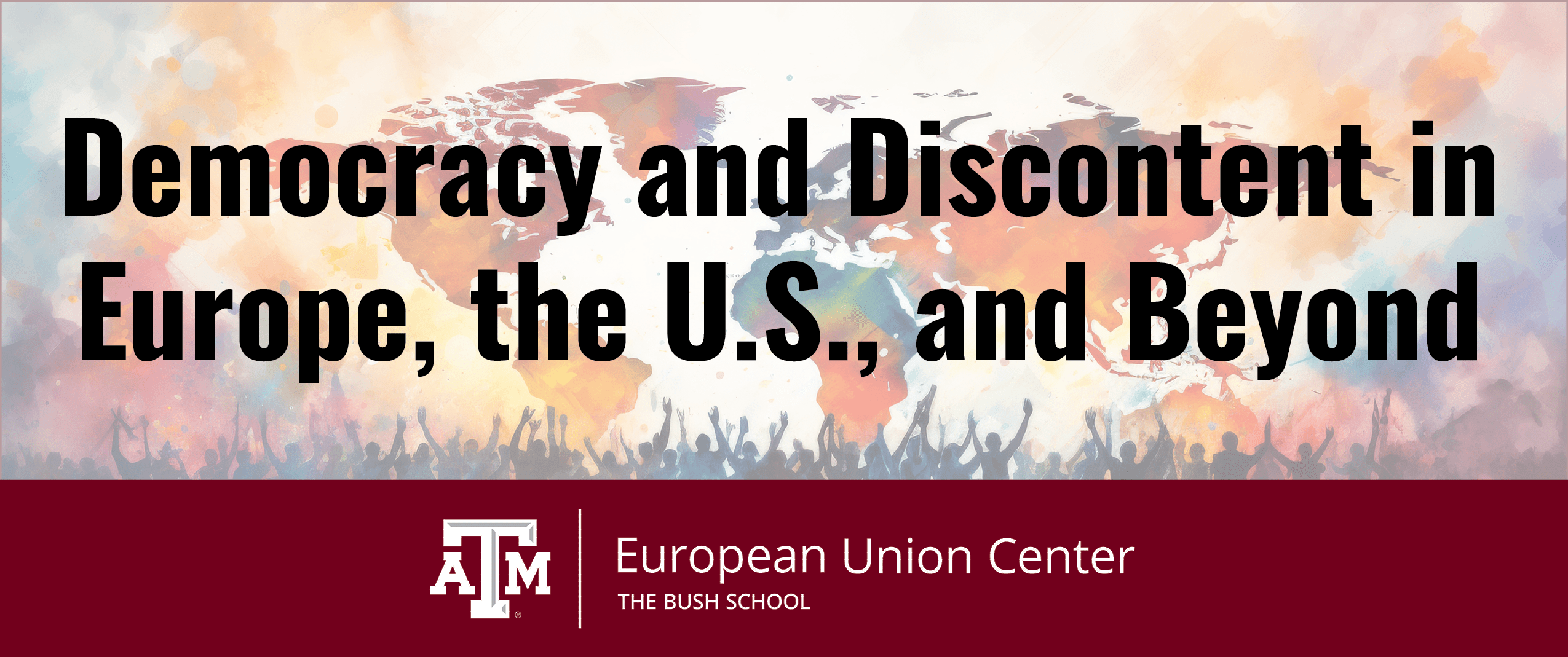
The “Democracy and Discontent in Europe, the U.S., and Beyond” event was on March 3. It was hosted by the European Union Center at The Bush School of Government and Public Service
Political polarization is a hot-button term, used by researchers and the media to describe political divisions across the globe. At the “Democracy and Discontent in Europe, the U.S., and Beyond” conference, the European Union Center brought together national and international scholars to discuss two significant debates that continue in the study of polarization.
The first is related to the root cause of polarization – whether competing policy views drive partisan animosity or if clashing political identities are to blame. The second debate focuses on the potential effectiveness of various interventions intended to reduce partisan hostility and its byproducts.
While the discussion among the conference participants showed varying levels of disagreement about many aspects of these debates, there was general consensus about the urgency of understanding and addressing the causes behind anti-democratic attitudes and the calls for political violence that continue around the globe.

